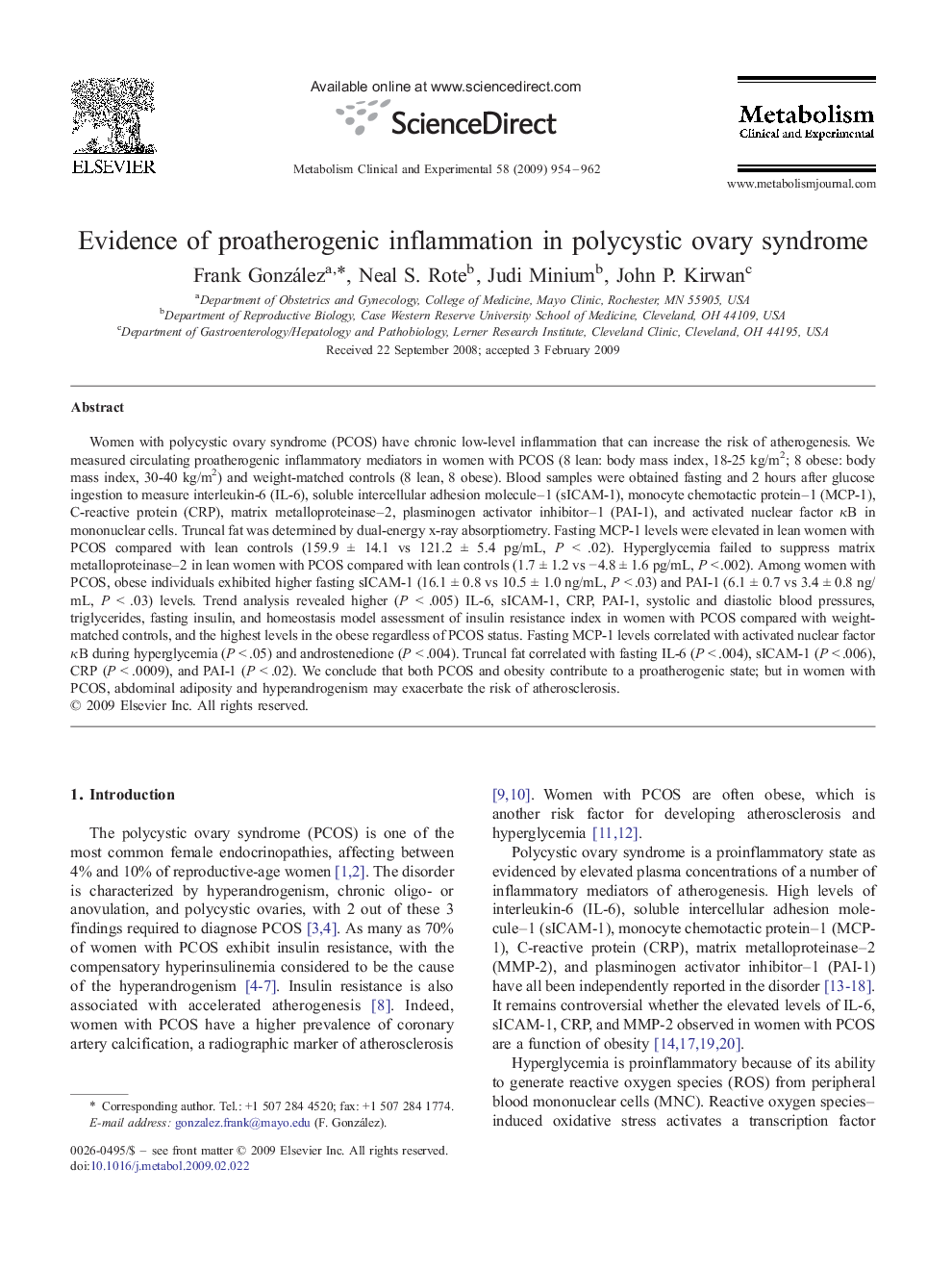| کد مقاله | کد نشریه | سال انتشار | مقاله انگلیسی | نسخه تمام متن |
|---|---|---|---|---|
| 2807252 | 1157155 | 2009 | 9 صفحه PDF | دانلود رایگان |

Women with polycystic ovary syndrome (PCOS) have chronic low-level inflammation that can increase the risk of atherogenesis. We measured circulating proatherogenic inflammatory mediators in women with PCOS (8 lean: body mass index, 18-25 kg/m2; 8 obese: body mass index, 30-40 kg/m2) and weight-matched controls (8 lean, 8 obese). Blood samples were obtained fasting and 2 hours after glucose ingestion to measure interleukin-6 (IL-6), soluble intercellular adhesion molecule–1 (sICAM-1), monocyte chemotactic protein–1 (MCP-1), C-reactive protein (CRP), matrix metalloproteinase–2, plasminogen activator inhibitor–1 (PAI-1), and activated nuclear factor κB in mononuclear cells. Truncal fat was determined by dual-energy x-ray absorptiometry. Fasting MCP-1 levels were elevated in lean women with PCOS compared with lean controls (159.9 ± 14.1 vs 121.2 ± 5.4 pg/mL, P < .02). Hyperglycemia failed to suppress matrix metalloproteinase–2 in lean women with PCOS compared with lean controls (1.7 ± 1.2 vs −4.8 ± 1.6 pg/mL, P < .002). Among women with PCOS, obese individuals exhibited higher fasting sICAM-1 (16.1 ± 0.8 vs 10.5 ± 1.0 ng/mL, P < .03) and PAI-1 (6.1 ± 0.7 vs 3.4 ± 0.8 ng/mL, P < .03) levels. Trend analysis revealed higher (P < .005) IL-6, sICAM-1, CRP, PAI-1, systolic and diastolic blood pressures, triglycerides, fasting insulin, and homeostasis model assessment of insulin resistance index in women with PCOS compared with weight-matched controls, and the highest levels in the obese regardless of PCOS status. Fasting MCP-1 levels correlated with activated nuclear factor κB during hyperglycemia (P < .05) and androstenedione (P < .004). Truncal fat correlated with fasting IL-6 (P < .004), sICAM-1 (P < .006), CRP (P < .0009), and PAI-1 (P < .02). We conclude that both PCOS and obesity contribute to a proatherogenic state; but in women with PCOS, abdominal adiposity and hyperandrogenism may exacerbate the risk of atherosclerosis.
Journal: Metabolism - Volume 58, Issue 7, July 2009, Pages 954–962